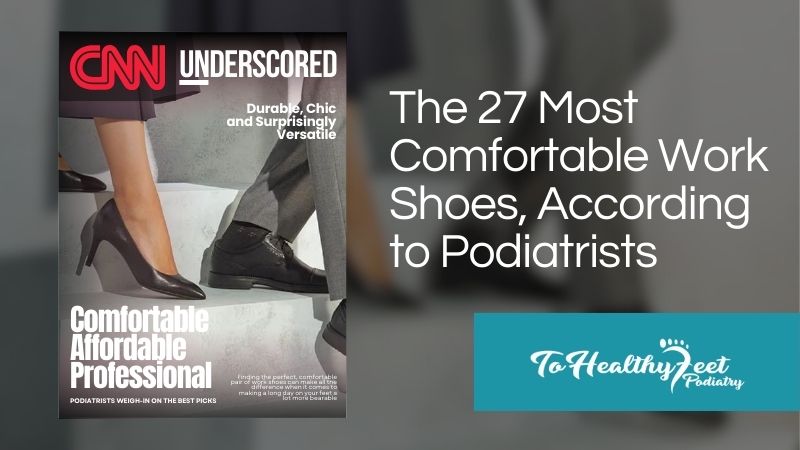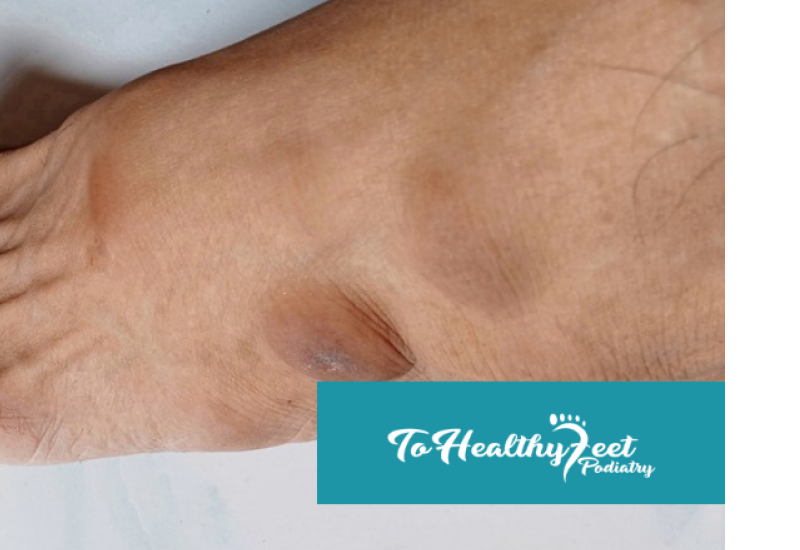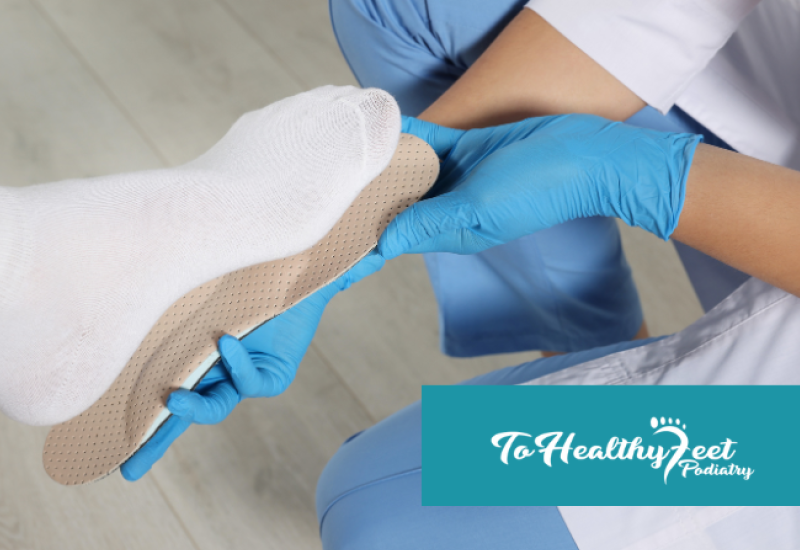In the fast-paced world of New York City, where professionals are constantly on their feet, the importance of comfortable and supportive work shoes cannot be overstated. Wearing the wrong shoes can lead to many foot problems, including pain, bunions, and plantar fasciitis. To help you find the perfect pair, the article has compiled a list of 27 work shoes recommended by top podiatrists for their comfort, support, and style. At To Healthy Feet Podiatry, we understand that your foot health is paramount which is why we’ve helped bring you the best options available.
Fit and Size Matter
Start by ensuring your shoes fit well. Dr. Miguel Cunha, founder of Gotham Footcare, advises shopping for shoes at the end of the day when your feet are most likely to be swollen. This way, you'll know if they’ll stay comfortable throughout the day. Dr. Suzanne Fuchs of LuxePodiatry emphasizes that your shoes should provide enough room in the toe box for natural toe movement while being snug enough in the heel to prevent slipping.
“There are definitely situations where there are after-work functions that don’t allow one to go home and change,” shares Clarke, a seasoned podiatrist. “You need a shoe that is comfortable in the day and just as stylish at night.” She recommends that her patients try on shoes at the end of the day since their feet tend to swell a bit after a day of walking and standing. “If you find that your shoes are comfortable with end-of-day swelling, they’ll be comfortable throughout the day,” she explains. “And if you’re purchasing a shoe that’s flat, make sure it has enough arch support to prevent problems like plantar fasciitis and other common foot problems.”
Support and Cushioning Are Key
Good arch support is essential for maintaining proper foot alignment and reducing strain on your feet, ankles, and knees. This is especially important if you're prone to conditions like plantar fasciitis. Additionally, adequate cushioning helps absorb shock and reduces pressure, making it vital for those with flat feet or those who stand for extended periods.
Material and Durability
The materials of your work shoes play a significant role in comfort and durability. Dr. Fuchs recommends opting for breathable materials like leather or mesh, which allow for ventilation and reduce moisture buildup, helping to prevent blisters and odors. For outdoor work, shoes with high-traction, slip-resistant outsoles are a must to minimize the risk of slips and falls.
Consider Your Foot Type
Different foot types require different support. If you overpronate (your arches collapse excessively), look for shoes with sturdy heel counters and reinforced midsoles. If you underpronate (you have high arches), prioritize shoes with ample cushioning and shock absorption.
Break Them In and Rotate
Always break in new shoes gradually to avoid blisters and discomfort. Rotating between different pairs of shoes can also reduce wear and tear, giving your feet a break and extending the life of your footwear.
Dr. Clarke advises getting your feet measured by a shoe store or a foot specialist. “There’s a large population of people wearing shoes that are the wrong size,” she explains. “Make sure you’re wearing shoes true to your size to prevent blisters, corns, or calluses — which can be very painful.”
Finding the perfect shoe is more than just a fashion statement — it's about prioritizing your foot health while looking great from day to night. For a comprehensive guide on finding the top 27 best work shoes, including expert recommendations for specific styles, check out the full article by Noelle Ike on CNN here.
Dr. Clarke and the team at To Healthy Feet Podiatry are here to help you make the best choices for your feet. With four convenient locations in Grand Central, Downtown, the Upper East Side, and Times Square, taking care of your feet has never been easier. Whether you’re dealing with foot or ankle pain or just looking for advice on the best footwear, our experts are ready to assist you in every step of your journey to healthier feet.
Written on behalf of To Healthy Feet Podiatry.
FAQs
Q: What should I look for in a comfortable work shoe?
A: Look for shoes with good arch support, adequate cushioning, a proper fit, and breathable materials. Ensure they provide enough room in the toe box and a snug fit in the heel to prevent slipping.
Q: What materials are best for work shoes to prevent foot issues?
A: Opt for breathable materials like leather or mesh to reduce moisture and prevent blisters. For outdoor work, choose shoes with slip-resistant outsoles for better traction.
Q: How can I choose the right work shoes for my specific foot type?
A: Consider your foot type — whether you overpronate, underpronate, or have high arches. Look for shoes that offer the right support, such as reinforced midsoles for overpronation or extra cushioning for high arches.




